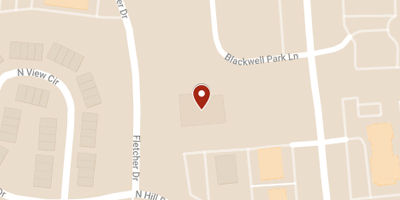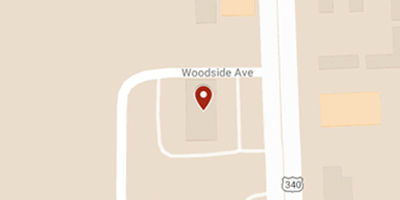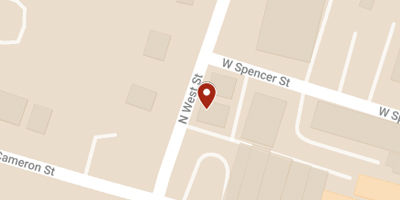 A wrongful death occurs when someone dies as a result of the negligence or intentional action of another party. Examples include deaths resulting from vehicle accidents, medical malpractice, premises or product liability, and crime. In general, if the deceased party could have filed a personal injury suit had death not resulted, then a wrongful death action is possible.
A wrongful death occurs when someone dies as a result of the negligence or intentional action of another party. Examples include deaths resulting from vehicle accidents, medical malpractice, premises or product liability, and crime. In general, if the deceased party could have filed a personal injury suit had death not resulted, then a wrongful death action is possible.
Standing to Bring a Wrongful Death Action
If you have “standing” to bring a legal action in court, you are legally permitted to do so. While many states grant wrongful death standing to any family member of a deceased person (decedent), Virginia does not. In Virginia, only the personal representative (or executor) of the decedent’s estate has the standing to file a civil wrongful death lawsuit. The personal representative of the estate might be named in the decedent’s will if one exists. If there is no will, an administrator can be appointed by the probate court to carry out the duties of the personal representative. In most cases, the administrator or personal representative is one of the beneficiaries of the estate.
Duties of the Personal Representative
The personal representative of the decedent’s estate has a variety of duties that include:
- Opening a bank account for the estate
- Gathering and protecting the assets of the estate
- Having assets appraised in some cases
- Paying any debts or taxes owed by the estate
- Collecting any debts owed to the estate and depositing them in the estate’s bank account
- Dispersing the remaining assets to beneficiaries according to instructions in the will or according to state laws of intestacy
- Filing income tax returns for the estate
- Closing the estate when all assets have been dispersed
Taking Legal Action on Behalf of the Estate
Only the personal representative may bring a wrongful death action on behalf of the estate. The resulting compensation should be deposited in the estate’s bank account and then dispersed to the estate’s beneficiaries.
Civil vs. Criminal Proceedings
A wrongful death suit is a civil action demanding financial compensation for damages. It is not a criminal case that can lead to incarceration. If your loved one’s death was a crime (for example, manslaughter by a drunk driver), there might be felony charges against the at-fault party. Such charges will be brought by the state, which will then prosecute the defendant.
These criminal proceedings are completely separate from your civil suit, which can be pursued simultaneously. Because a criminal case can drag out for a long time, and you have only two years to file your wrongful death suit, you should not wait for criminal proceedings to end. A criminal conviction against the at-fault party, however, does prove the defendant was responsible for your loved one’s death and strengthens your civil wrongful death claim.
Wrongful Death Damages
If you can prove by a preponderance of the evidence in the case that the negligent or intentional actions of the at-fault party led to the death of your loved one, who would have survived but for the actions of the defendant, you can demand monetary compensation for:
- Reasonable funeral expenses
- Medical bills for hospitalization and treatment of the injuries that led to the decedent’s death
- Emotional anguish and sorrow due to the loss of the decedent’s companionship, consortium, guidance, advice, and/or protection
- Loss of future income if you were financially dependent upon the decedent
Evidence to prove the above losses to the court would include bills, receipts, check stubs, income tax returns, and perhaps the testimony of other family members.
Punitive Damages
If the actions of the at-fault party are deemed by the court to be “willful or wanton” or to show a “conscious disregard for the safety of others,” it can award punitive damages in addition to your compensatory damages. The amount of punitive damages is determined by the court and not based on your financial loss following the death of your loved one. The purpose is to punish the defendant for behaving recklessly and to deter others from doing the same. (For example, punitive damages might be awarded in a vehicular manslaughter case if the liable driver is convicted of DUI.)
Beneficiaries of the Estate
If the wrongful death suit is successful, the personal representative, who might or might not be a beneficiary of the estate, will disperse all monetary compensation received to the living beneficiaries of the estate:
- The surviving spouse of the decedent
- Children of the decedent
- Grandchildren of the decedent
- Parents and siblings of the deceased, if there is no spouse, child, or grandchild living
- Any surviving family member if none of the above are living
Any person related to the decedent by blood, marriage, or adoption is considered a family member, so adopted children and stepchildren can be considered beneficiaries, as well.
The Need for an Attorney
Because a wrongful death case incorporates elements of both personal injury and estate law, the services of an experienced attorney are strongly recommended for sorting out the legal complexities of the action and making sure you observe the statute of limitations as well as other procedural requirements. Your lawyer will also know how to monetize your losses in order to demand fair compensation.
Lost future income generally accounts for the largest portion of a wrongful death award, especially if the decedent passed away at a young age. Your lawyer can look into your lost loved one’s past earnings and consult with experts to determine what the decedent’s future earnings would have been but for the wrongful death. Your attorney can also put a dollar amount on the emotional anguish and sorrow your loved one’s death has caused and will cause you in the future.
Have You Lost a Loved One Due to the Negligent or Intentional Actions of Someone Else?
An experienced wrongful death attorney can help you determine the value of your claim and demand fair compensation for your losses. Contact us online or call us at 540-341-0007 to schedule your free consultation. You pay no attorney fees until we win your case.
|
Related Links: |














